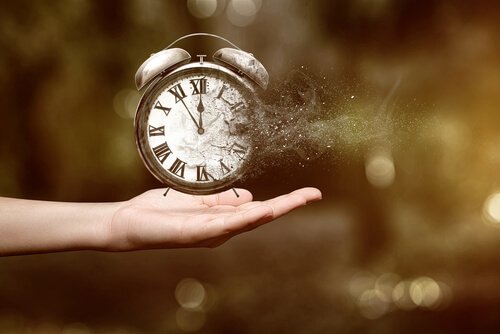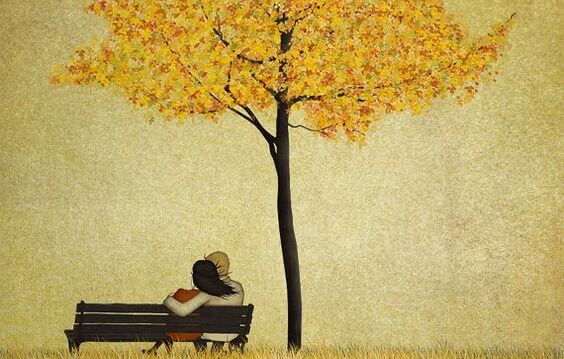The Greatest and Most Beautiful Things Grow Slowly and Silently


Written and verified by the psychologist Gema Sánchez Cuevas
Love is a quick and fleeting spark that ignites two hearts. However, love also happens slowly. You find it in each agreement reached, each difficulty overcome, and the complicity of the little things that make the world go around.
The greatest and most beautiful things require time, effort, and commitment. We know this, because life, like nature itself, has its own cycles and prescribed rhythms. Nevertheless, your brain perceives time as amazingly fast. It’s as if your whole life has run away from you.
Walk slowly and go slowly. Don’t worry about anything else, because the only place you have to be is with yourself.
According to an interesting paper published by Dr. Dharma Singh Khalsa, a specialist in neurology and gerontology, our perception of time tends to ‘speed up’ as we reach middle age.
As a matter of fact, the years slip away from us like smoke escaping through an open window and, somehow, we stop enjoying the present. Indeed, we stop noticing those things that grow silently and that could enrich our hearts even more. Let’s take a closer look.
Time: A train going at full speed with no stops
Sometimes, almost without knowing how, the most important things escape you or pass you by too quickly. For instance, those last two centimeters in height your child has suddenly grown, that romantic weekend
alone with your partner, the last time you had dinner with friends, or last summer, that seemed to end, with the first autumn rains, before you had a chance to even blink.

Time is a thief that steals everything except one thing. These are your memories.
John Lennon said that “Life is what happens when you’re busy making other plans”. Although, in reality, you could probably say that you often fail to value or see how important many of the dimensions are that surround you at each moment of your life cycle.
There always comes a time when you long for those long-lost conversations you had with your mother while you watched her cook, or those little romantic tiffs with your partner at the beginning of your relationship, or the drawings that your children gave you so enthusiastically when they returned from school. Where has it all gone? Was it really that long ago?
Your brain speeds up the perception of time
As we mentioned earlier, as you mature and grow older, your perception of time changes. If you add to this a fast-paced lifestyle and the pressure of demanding environments, it means that you’re increasingly less present, and your feelings of existential emptiness and temporary transience rise even more.
Douwe Draaisma, Professor of the History of Psychology at the University of Groningen in the Netherlands, tells us about an interesting phenomenon called the ‘reminiscence effect’. According to this, for your brain, time is relative, and it only attaches importance to extremely significant specific events.
It’s often said that it’s between the ages of 20 and 40 that, on average, the most emotionally intense memories accumulate. From the age of 50 or 60, the subjective sensation of time changes. In fact, it goes faster because there aren’t so many significant stimuli or so many experiences that ‘enslave’ you to the present.

Making time go slower is at your fingertips
As you’ve seen, if the reminiscence effect is what makes the present escape you because you focus too much on the emotionally intense memories of yesterday, it’s worth starting to ‘cultivate’ your here and now of moments of fulfillment and positive emotions.
You don’t have to lead the life of a twentysomething to enjoy the present. It’s only a question of taking into account these elements:
- Your best age is now, not when you’ll be older or when you were younger. What you didn’t know or couldn’t achieve in your youth, your wise and balanced maturity will deal with.
- Around you, wonderful things continue to grow, things that move slowly and silently. The love of those who surround you, the intimate complicity of those who know how to read your eyes or make you smile when you least expect it. All of this is happening right now, you just have to stop and enjoy it.
- Sad music tricks your brain, making it believe that time passes more quickly. In fact, anything out of the ordinary is a stimulus, an emotionally charged incentive that changes your perception of time.
Travel, do something different every day no matter how small. Look at the people you love and capture that mental image for your heart and brain.
Make each moment have a smell, a sensation, a taste… Stimulate all your senses and embrace the present as if there were no yesterday and no tomorrow.
This text is provided for informational purposes only and does not replace consultation with a professional. If in doubt, consult your specialist.








